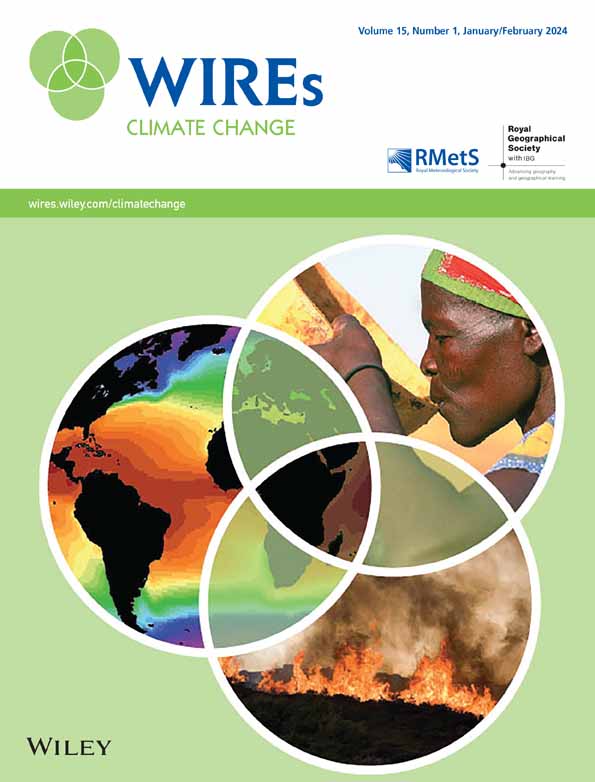我们对气候政策对就业的影响了解多少?事后文献综述
IF 10.3
1区 环境科学与生态学
Q1 ENVIRONMENTAL STUDIES
引用次数: 6
摘要
对气候缓解政策对就业影响的担忧可能是一个有争议和政治化的问题,对气候行动的影响可能会受到限制。尽管有大量的事前文献表明,综合效应很可能是有限的和净积极的,但它仍然存在。这篇综述分析了20个国家和2个国家集团的60篇评估气候政策对就业影响的论文。涵盖八项广泛的缓解政策:(1)排放交易,(2)碳税,(3)上网电价,可再生能源,(4)采购和(5)部署,(6)绿色经济/就业,(7)环境监管,以及(8)其他政策和法规。该分析证实,就业影响往往是适度的、净积极的或中性的,但揭示了分配结果可能是不均衡的,对某些群体不利,有时还会加剧现有的不平等。此外,低质量的工作或薄弱的劳动力市场监管可能会降低所创造工作的吸引力或增加工作转换成本。这些发现为进一步关注气候政策如何确保《巴黎协定》规定的“劳动力的公正过渡以及创造体面工作和高质量工作”提供了一些理由,但也表明,不应因为担心广泛的负面就业影响而推迟气候行动。事后评估为了解气候政策就业结果的决定因素提供了一个重要视角,应该加以推进和利用,以支持加快和公正的行动。本文章由计算机程序翻译,如有差异,请以英文原文为准。
What do we know about the employment impacts of climate policies? A review of the ex post literature
Concern around the employment impacts of climate mitigation policies can be a contentious and politized issue, with potentially limiting implications for climate action. It persists despite a significant ex ante literature that suggests that aggregate effects will most likely be limited and net positive. This review analyses 60 papers assessing the employment impacts of climate policies ex post, in 20 countries and 2 country groups. Eight broad mitigation policies are covered: (1) emissions trading, (2) carbon taxes, (3) feed‐in tariffs, renewable energy (4) procurement and (5) deployment, (6) green economy/jobs, (7) environmental regulation, and (8) other policies and regulations. The analysis confirms that employment impacts tend to be modest and net positive or neutral, but reveals that distributional outcomes can be uneven, disadvantaging certain groups and at times reinforcing existing inequalities. Additionally, lower quality jobs or weak labor market regulations may decrease the attractiveness of jobs created or increase job transition costs. These findings provide some justification for increased focus on how climate policies can ensure a “just transition of the workforce and the creation of decent work and quality jobs” stipulated in the Paris Agreement, but also suggest that climate action should not be delayed for fear of widespread negative employment impacts. Ex post assessments offer an important lens into the determinants of climate policy employment outcomes and should be advanced and harnessed in support of accelerated and just action.
求助全文
通过发布文献求助,成功后即可免费获取论文全文。
去求助
来源期刊

Wiley Interdisciplinary Reviews: Climate Change
METEOROLOGY & ATMOSPHERIC SCIENCES-
CiteScore
20.00
自引率
2.20%
发文量
58
审稿时长
>12 weeks
期刊介绍:
WIREs Climate Change serves as a distinctive platform for delving into current and emerging knowledge across various disciplines contributing to the understanding of climate change. This includes environmental history, humanities, physical and life sciences, social sciences, engineering, and economics. Developed in association with the Royal Meteorological Society and the Royal Geographical Society (with IBG) in the UK, this publication acts as an encyclopedic reference for climate change scholarship and research, offering a forum to explore diverse perspectives on how climate change is comprehended, analyzed, and contested globally.
 求助内容:
求助内容: 应助结果提醒方式:
应助结果提醒方式:


